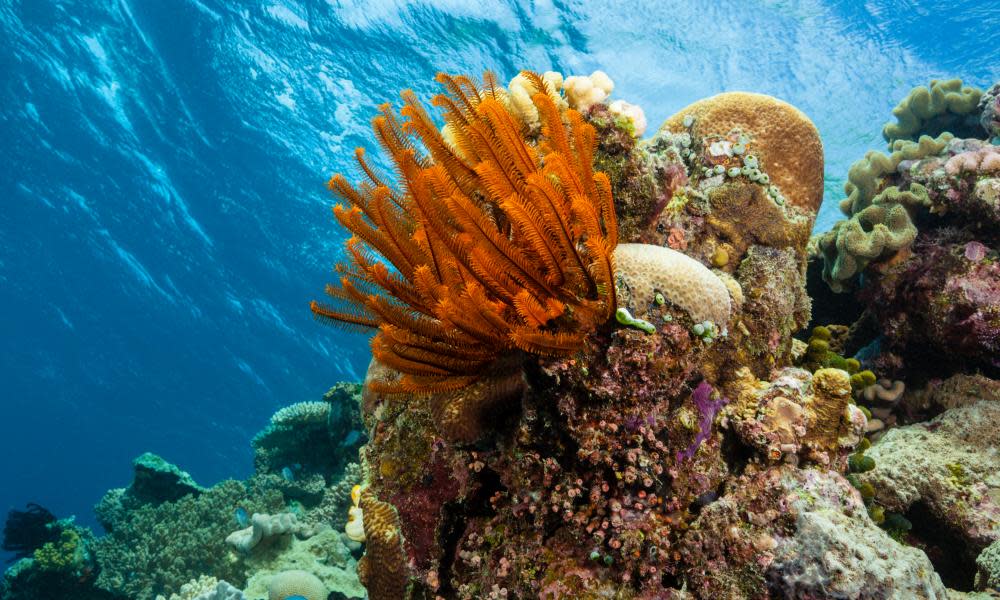Great Barrier Reef Foundation seeks another $400m with corporate push

The Great Barrier Reef foundation has announced plans to raise up to $400m on top of its controversial $433m federal government grant, including from fossil fuel companies and other corporate donors who give money for “reputation scoring”.
The foundation has consistently made it clear it will not play a role in pushing for stronger emissions reductions targets, despite consistent and repeated scientific warnings that no reef program will be worthwhile without action on climate change.
Four days after the Intergovernmental Panel on Climate Change again warned of the dire threat to coral reefs posed by global warming, the foundation has released its collaborative investment strategy.
The foundation, which has ties to the fossil-fuel industry and receives donations from mining companies, wants to raise $50m over five years from “corporate giving” and said companies that took part sought benefits for their philanthropy.
“Corporate partners seek partnering benefits that: deliver project impact, recognise the value of their investment, drive employee engagement, position them as an employer of choice, and contribute positively to reputation scoring or social licence to operate,” the strategy says.
The foundation is promoting its new strategy as Australia’s largest ever environmental fundraising campaign, with an aim of leveraging the $433m federal grant and raising an additional $300m to $400m. Of that amount, an estimated $7m will come from a drive for individual donors.
The money would include about $100m allocated to a reef restoration and adaptation program, and for other not-specified projects and research.
After a Senate inquiry into the granting of federal money to the foundation, which was done without a competitive tender process, Labor has warned it will seek to recover the funds if elected next year.
The foundation’s chair, Anna Marsden, said the grant was crucial in the foundation’s ability to “amplify by an additional $300m to $400m through our unique capacity to leverage private funds”.
Marsden acknowledged the impact of climate change in a statement announcing the fundraising strategy and said there was “a closing window of opportunity for the world to act on climate change and the sharp threat facing coral reefs”.
“This underscores the urgent need to fund the next generation of ideas that give our coral reefs a fighting chance in the face of a rapidly changing climate,” she said.
The fundraising policy says the foundation would accept grants where the funds were consistent “in fact and appearance” with its mandate.
It will continue to take money from fossil fuel companies but reject “the proceeds of the tobacco industry, crime, pornography, weapons, firearms, munitions or slavery”.
The IPCC special report on the impact of global warming of 1.5C above pre-industrial levels found coral reefs were likely to decline between 70% and 90% if the temperature increased to that level. If global warming reached 2C, more than 99% of coral reefs were projected to decline.
Scientists said it underlined the need for urgent global action to cut greenhouse gas emissions – including a rapid withdrawal of coal-fired electricity.

 Yahoo News
Yahoo News 
